Projects of the Klassik Stiftung Weimar are funded by the European Regional Development Fund (ERDF) and the Free State of Thuringia, represented by the State Chancellery of Thuringia, Department of Culture and the Arts.
Exhibitions
How does language affect us? And how do we influence language? In our Theme Year 2022 exhibitions, we invite you to approach and explore language from very different angles.
Exhibitions and presentations
Nietzsche – Weimar – GDR. Two Italians Discover the Real Nietzsche
Exhibition at the Nietzsche-Archiv | 7 May 2022 – 1 November 2022 & 21 March 2023 – 27 March 2023
This temporary exhibition portrays the achievements of the Italian-born German Studies scholar Mazzino Montinari, who worked in Weimar in the 1960s. While he and his professor Giorgio Golli were retranslating Nietzsche’s writings, they stumbled across numerous alterations and forgeries, for which Elisabeth Förster-Nietzsche and her research assistants at the Nietzsche-Archiv were responsible. Over several years, the two Italian scholars produced a critical edition of the famous philosopher’s works and estate which is still considered the standard reference work today. After 1964, they published the new edition in Italy, France and West Germany. In former East Germany (GDR), however, many were suspicious of Nietzsche’s legacy as his philosophy was often misappropriated by the National Socialists. The exhibition examines the circumstances under which the Italians were able to produce the edition. A presentation of photos and documents will be supplemented by an audio station which highlights a selected forgery and how it was corrected.
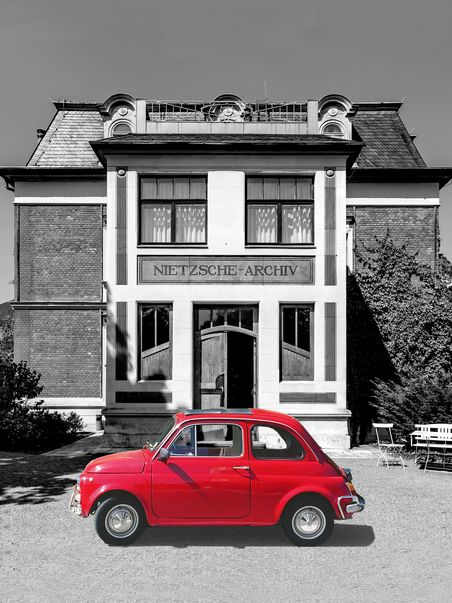
Translation as Dispute – Books on Tour
Exhibition at the Study Centre of the Herzogin Anna Amalia Bibliothek (HAAB) | 4 June 2022 – 18 January 2023
The presentation takes us on a tour of the HAAB collections, through the centuries and the history of translation. With Martin Luther’s new translations, the Bible was reinvented as a new book. It became a weapon in religious disputes, spawned competition and generated new points of view. This is substantiated by the 16th-century illustrations contained in Weimar’s Bible Collection. In the 17th and 18th century, books assumed a more mobile format as exemplified by a historical travel library anno 1800, which you can discover for yourself in the open-access shelves. The presentation at the Study Centre will be supplemented by volumes from the Herder Church library on display at the Historic Library (HAAB) and in public tours of the “Treasures of the Weimar Bible Collection”.
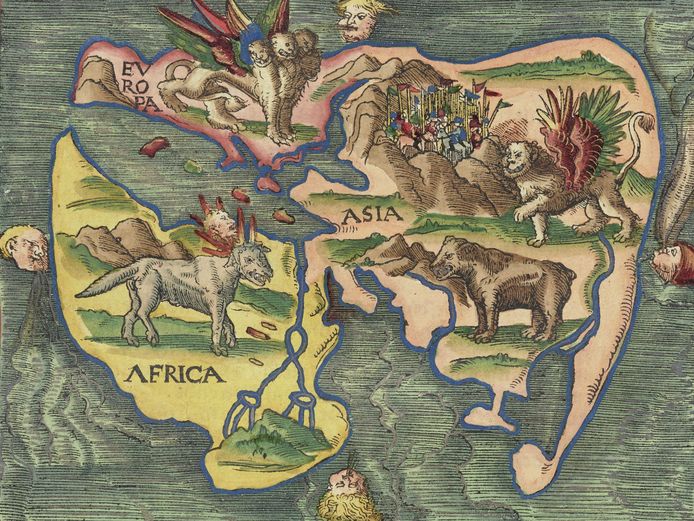
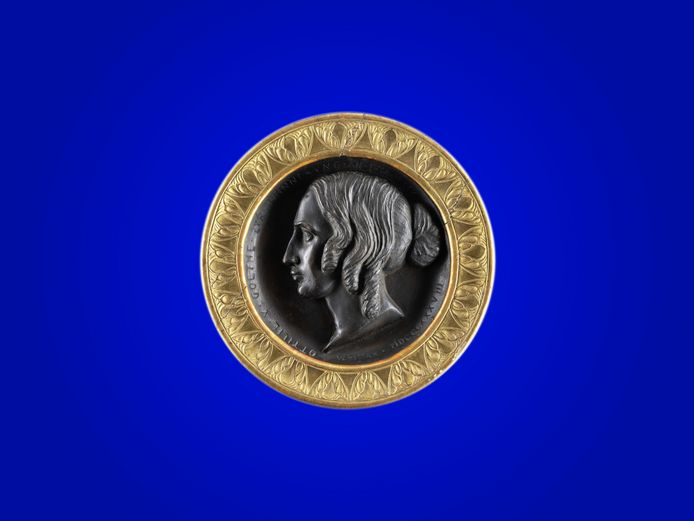
Courage under Chaos – Ottilie von Goethe
Exhibition at the Goethe- und Schiller-Archiv (GSA) | 26.08. – 18.12.2022
Ottilie von Goethe is widely regarded as one of the most fascinating but controversial women of her time. While previous research has largely emphasised her status as Goethe’s daughter-in-law and unhappy wife to August, this exhibition shifts the focus to her seldom-investigated intellectual life’s work. The displayed manuscripts, artworks and books present her as a translator, the editor of her own multilingual journal Chaos, and as a spirited, self-confident and cosmopolitan woman.
Germany’s First Writer
Exhibition at the Wieland Estate in Ossmannstedt | since 3 September 2022
A new, innovative exhibition concept in the historic living quarters of the Wieland Estate portrays Christoph Martin Wieland as a novelist, chronicler of the French Revolution and translator. Additional exhibition space in the historic residence, the interplay with the romantic park and the Wieland gravesite on the Ilm River, and other detailed information and media are sure to make Ossmannstedt an exciting new experience for all friends of Weimar Classicism.
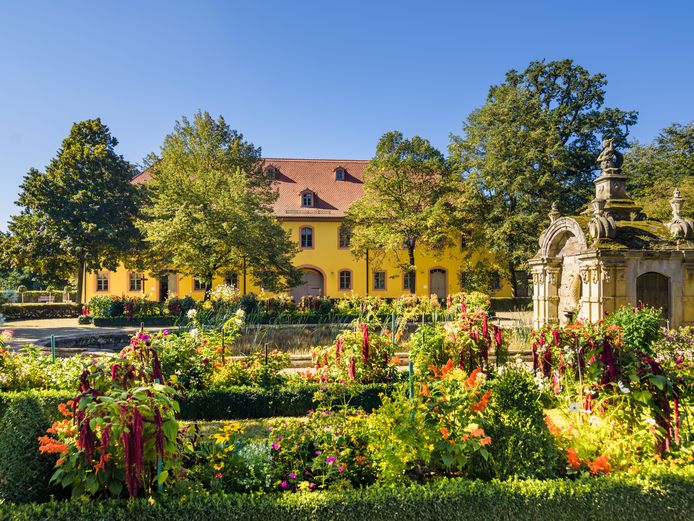
Translating the World. Contemporary Perspectives on Walter Benjamin
Exhibitions at the Bauhaus Museum Weimar | 12 March – 31 October 2022
- Part 1: Esther Shalev-Gerz: “Inseparable Angels. An Imaginary House for Walter Benjamin” 12 March to 16 May 2022
- Part 2: Ori Gersht: “Evaders” 11 June to 1 August 2022
- Part 3: Aura Rosenberg: “Angel of History” 27 August to 31 October 2022
As part of the Theme Year 2022 on “Language”, the Bauhaus Museum Weimar will present three successive installations by Esther Shalev-Gerz, Ori Gersht und Aura Rosenberg which explore the overlap of images and the written word in time and space. All three share a common thread, namely, they all shed light on the relationship between language and imagery. This relationship is staged in various ways using objects, photographs, projections, animated films, and written and spoken texts of all kinds. All three artists draw their inspiration from Walter Benjamin’s famous 9th historical thesis which he wrote while fleeing from the Nazis in 1939.

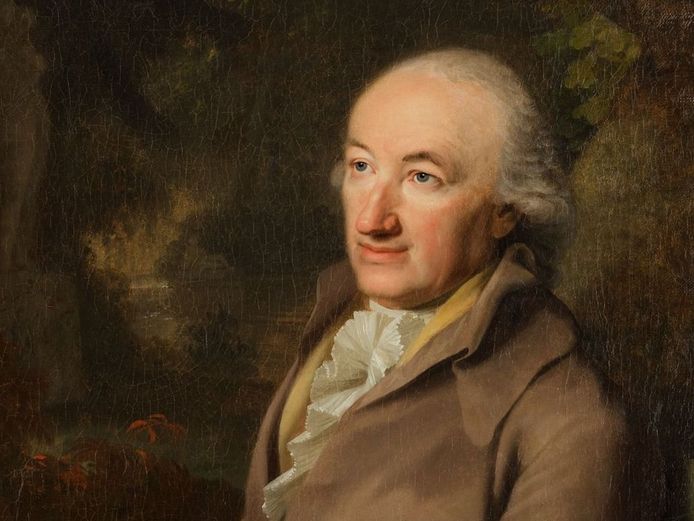
Wieland! A World Spirit in Weimar
Exhibition at the Goethe- und Schiller-Archiv | 6 May – 14 August 2022
To mark the 250th anniversary of Christoph Martin Wieland’s arrival in Weimar, the Goethe- und Schiller-Archiv will present manuscripts, books, everyday objects and graphic works by the prolific writer and translator. As one of Germany’s great intellectuals, Wieland was committed to disseminating and discussing knowledge in various ways and with numerous people throughout his life.

NEUSPRÉCH: KUNST WIDERSPRICHT
Exhibition in the Schiller Museum | 7 May – 25 September 2022
Fifteen artistic positions grapple with the topic “marketing jargon, Pegida jargon, art scene jargon, anti-terror jargon, political jargon” and the “entire spectrum of ‘us vs. them’ jargon”. The curators Oliver Ross and Simon Starke will present “Language Tainted by Art”.

